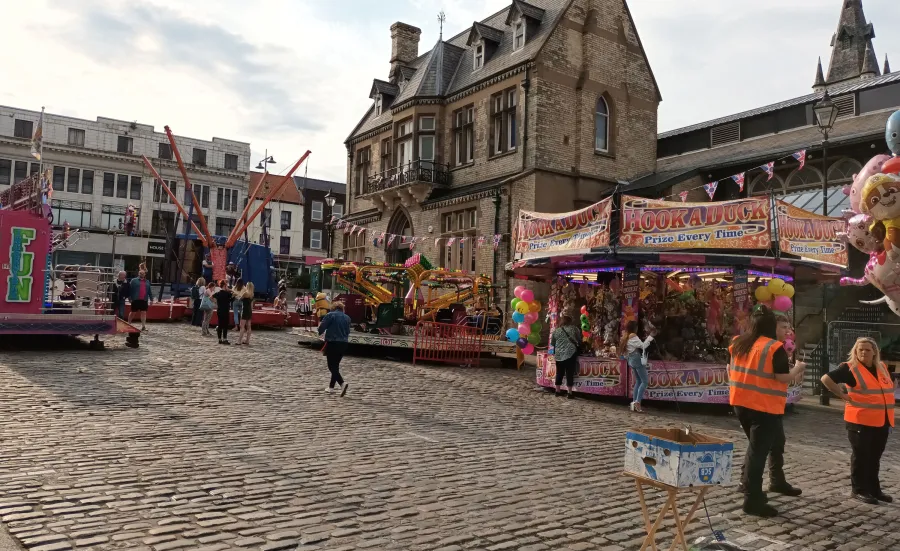Understanding how people really feel about the places where they live has never been more important.
These are nuanced questions, but being able to answer them is crucial for the civil servants whose policies shape our daily lives and the neighbourhoods in which we live. As the government pours billions of pounds into its Levelling Up agenda, researchers from across the University of 网络彩票APP下载_澳客彩票网-官方游戏, are exploring clever and surprising ways to record these sometimes abstract feelings and ideas.
The University’s Feeling Towns project brings together a disparate group of researchers – everyone from storytellers and literature critics to public policy experts and data analysts – to help digest the impact of government policies on local areas. Most importantly, they are testing out creative new ways to analyse people’s views and opinions.
This work isn’t nebulous, explains Dr Joseph Owen, who is the Lead Researcher on the project, but a form of hard data. “There is data here” he says ," it just looks a bit different from the spreadsheets and annual reports you may be used to.
Joseph is a literary scholar by background with a doctorate in English literature. Now he’s working to find new ways of telling our shared stories.
How do you measure and compare how proud a certain place in the UK is compared to another? We were fascinated by that idea”
Dr Joseph Owen
Together with other researchers, he has travelled the country from Darlington to Dorchester to the Isle of Wight and tried out new ways of understanding and recording complex emotions about place, identity and civic pride.
The group has tried out lots of techniques working with local people to record their ideas, from local poetry writing exercises to emoji mapping – pinning images of emojis to a map to chart their feelings about each place. The result of that is a visual image that captures a town’s experiences and emotions.
Also working on the project is Joey Jones, a fourth-year research student in Computer Science with a background in writing interactive novels. He didn’t expect to find himself reading public health policy as part of his research, and is inspired by the surprising avenue his career is taking him on. “It’s been a lot of fun and very enriching. It was really exciting to see what other practitioners were bringing to the project,” he says.
There is a danger of doing a PhD being a very solitary task, so getting involved in these interdepartmental projects is exciting
Joey Jones
How will this data be used? That is another challenge for the group, which is now working on a new project to find ways to make all the information they have gathered in such creative forms useful for councils and other local decision makers. It also needs to be accessible so they are exploring ways to create an interactive computer programme that everyone – from local residents to councillors and businesses – can access.
Joseph imagines it as a “choose your own adventure” map that can navigate through all the rich information they’ve collected.
Local authorities have in the past struggled to grapple with qualitative data about the people they serve, particularly when gathering information about how people feel about a place. The Feeling Towns project is finding new ways to resolve that tension. “It’s about recognising the value of that data in and of itself,” Joseph says. “There’s definitely a desire for it.”





